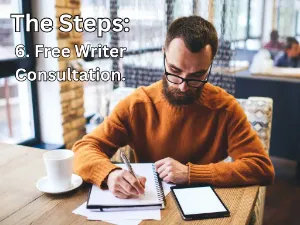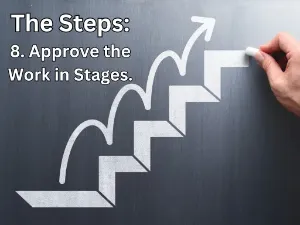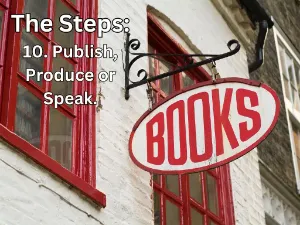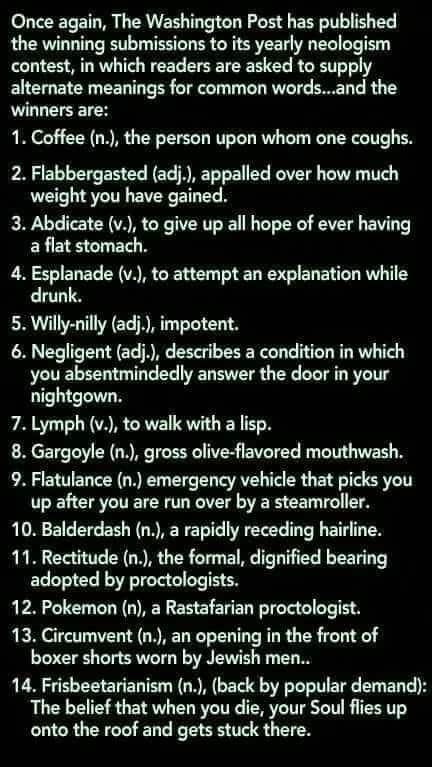I came across this today and broke up laughing. These are seriously clever! Thanks to the Washington Post. I wasn’t aware of their neologism contest, but I am now! Read and enjoy. Pass it along.

The most valuable of all talents is that of never using two words when one will do.
When writing a novel, that’s pretty much entirely what life turns into: “House burned down. Car stolen. Cat exploded. Did 1,500 easy words, so all in all it was a pretty good day.”
My aim is to put down what I see and what I feel in the best and simplest way I can tell it.
Writing is not necessarily something to be ashamed of, but do it in private and wash your hands afterwards.
If the sex scene doesn’t make you want to do it — whatever it is they’re doing — it hasn’t been written right.
Do not place a photograph of your favorite author on your desk, especially if the author is one of the famous ones who committed suicide.
My own experience is that once a story has been written, one has to cross out the beginning and the end. It is there that we authors do most of our lying.
Do you know what a playwright is? A playwright is someone who lets his guts hang out on the stage.
Asking a working writer what he thinks about critics is like asking a lamppost how it feels about dogs.
If you haven’t got an idea, start a story anyway. You can always throw it away, and maybe by the time you get to the fourth page you will have an idea, and you’ll only have to throw away the first three pages.
There are three primal urges in human beings: Food, sex, and rewriting someone else’s play.
Writing a novel is like driving a car at night. You can only see as far as your headlights, but you can make the whole trip that way.
A writer without interest or sympathy for the foibles of his fellow man is not conceivable as a writer.





































